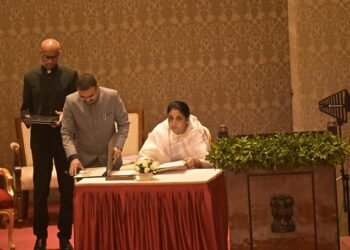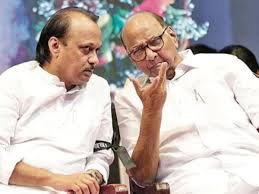The Supreme Court is set to examine audio recordings that allegedly implicate Manipur Chief Minister Biren Singh in exacerbating violence in the state. The recordings, submitted by the Kuki Organisation for Human Rights Trust, reportedly capture the Chief Minister discussing the looting of arms, raising new questions about leadership accountability amid escalating tensions.
By PC Bureau
For months, Manipur has been engulfed in a brutal conflict, marked by violence and displacement. Despite the scale of the crisis, it has largely been ignored by the mainstream media and sidelined by the political establishment. Now, Manipur is once again demanding attention, but this time the focus is not only on the ongoing violence but also on Chief Minister Biren Singh’s alleged role in it.
A day after a 31-year-old Kuki woman was shot and set on fire and several houses scorched, the Supreme Court on Friday agreed to examine certain audio recordings that allegedly point to the role of the Manipur Chief Minister in the communal violence in the State between Meitei and Kuki communities.
A petition filed by the Kuki Organisation for Human Rights Trust claims that audio recordings suggest the Chief Minister’s involvement in fueling the violence between the Meitei and Kuki communities. The petitioner alleges that the recordings reveal the Chief Minister’s admission to allowing the looting of arms and ammunition, thereby exacerbating the situation.
Advocate Prashant Bhushan, representing the Kuki Organisation for Human Rights Trust, claimed the recordings capture the Chief Minister’s admission of permitting the looting of arms and ammunition. The Court has asked Bhushan to provide evidence substantiating the authenticity of these recordings.
Solicitor General Tushar Mehta, representing the Central government, strongly opposed the petition, arguing it could escalate tensions in the state and suggested the matter be directed to the High Court. “The probe is ongoing. The Chief Minister has met all the Kuki MLAs to ensure peace, but the whistleblower does not want peace. The intention is to keep the fire burning,” Mehta contended, urging the petitioners to approach the High Court.
Also Read: Over 60 Dead in Bihar’s Chhath festivities amid drownings and boat capsizes
However, the Court emphasized its constitutional duty to uphold justice and accountability, rejecting Mehta’s suggestion. “We grant the petitioner an opportunity to submit material indicating the authenticity of the recording,” the Court noted.
Mehta, in response, objected to the Court’s decision, adding, “We have a porous border, and we don’t fully know the situation on the ground. It’s because my lords are in ivory towers—I mean this in no pejorative sense.”
CJI Chandrachud replied, “We have a duty as a Constitutional court and cannot brush things under the carpet. We also know what happened in Manipur. We are not in ivory towers, which is why we are hearing this and did not dismiss it outright. Not in the least, Solicitor, not in the least.”
Meanwhile, in Manipur’s Jiribam district, after two months of relative calm, an attack on a tribal Hmar village resulted in the death of a woman, identified as 31-year-old Zosangkim, a teacher, according to local Hmar community organizations. She was reportedly shot during an assault on Zairawm village, seven kilometers from the district police station and near a CRPF camp. At least seven houses were set on fire during the attack.
Police have yet to recover her remains, but villagers have fled to nearby Gilgal village on the Assam border, claiming to have taken her body with them. According to Hmar groups, Zosangkim was struck in the leg while attempting to escape, leaving her unable to flee the attack. The Hmar Students’ Association Jiribam condemned the security forces’ inability to contain the violence in the area.













